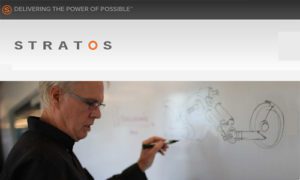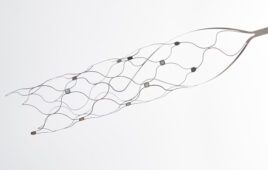 UPDATE May 10, 2016: In the interest of full disclosure, Heather Thompson was a freelance writer for the Stratos blog.
UPDATE May 10, 2016: In the interest of full disclosure, Heather Thompson was a freelance writer for the Stratos blog.
There has been some conjecture since the once premier consulting firm, Stratos Product Development, shut down last week. Those closest to the company have expressed a deep sadness in the abrupt end of a company that— at least from the outside — represented the pinnacle of what a medical technology consultancy firm could achieve.
MDO spoke with Cameron Smith, the CEO and Founder of Seattle-based Product Creation Studio. Smith is a local competitor who had a summer gig at Stratos. Smith, who knows many of the employees, shared some insights and laments about the state of product consultancies, particularly those serving the medical technology space. What are the challenges that all product consultancies face, and why did Stratos perhaps succumb to them?
Leadership and cultural shifts
Some of the reasons Stratos may have failed were personal to the company. Smith noted that a few years ago, the firm underwent a significant leadership change. The leadership shakeup involved Sean Macleod, who had served as president of the company since 2004 and left the firm in 2015.
“Any time you get a leadership change, you have to expect continuity challenges.” The effects are felt both internally and externally, said Smith, explaining that there is institutional knowledge, the trust of clients, and culture shifts that require strong effort to recuperate.
Smith also said that the medical device industry is highly relationship-based – far more than other industries might be. “You have somebody that is leading the company, that is working with the bigger clients, and they’re not there anymore and somebody else has to come in and fill the shoes.” When an industry is so relationship focused, filling those shoes becomes a significant challenge.
The ups and downs of a consultancy business
Smith pointed to the fact that consultancy, in general, has a lot of ups and downs. “Projects speed up, slow down, and have long development times. Handling overhead while switching from one project to another is an inherent risk in consulting services.
“One of the hardest things for a consulting group to face is the stopping and starting of projects,” Smith explained. “For example, if a startup is meeting a milestone, it may have to wait for more funding once that milestone is achieved. But while a consulting firm is waiting for those funds, it can’t just take the project team and move them to another project.”
The risks faced by all consultancy firms are doubly burdensome when working in the medical technology space because the design knowledge is more specialized and requires more overhead to keep talented teams.
“Medical devices have a longer development process that consumer products, and require more specific experience—that talent is more difficult to find and more difficult to retain.” These are people who could go to higher paying jobs within the medtech industry, Smith said: “You can’t get by in medtech with junior, less experienced people.”
Stratos was also one of the first firms to gain ISO 13485 certification, which also requires more overhead for a consultancy. “Building an ISO certified system and sustaining it is huge, and comparatively, consumer products typically want less paperwork and a faster market path.”
A top heavy medical team
Beyond those general problems, Stratos’s abundance of its medical prowess may have hurt the company most of all.
“If I were to speculate on Stratos, I think they had a really heavy medical portfolio,” Smith said. “From my understanding, Stratos was 80% medical. And they were top heavy on medical devices —a lot of senior people with a lot of medical experience.”
What medtech should look for in product development firms
Smith’s advice for medtech is to look for product design firms that have a diversified portfolio, but also deep knowledge in medical technology.
But diversification need not be far removed from medical. Firms that are branching into the consumer healthcare space are adapting and applying their medical expertise to a consumer space.
Smith pointed out that his firm, Product Creation Studio, recently went through ISO 13485 certification and knows first-hand that the process requires a lot of energy and time. Smith said he has found that the benefits are attractive to companies developing non-FDA regulated products because the expectation among consumers is that home care products and consumer healthcare products will have the same level of accuracy and reliability as FDA-regulated products, along with the user experience requirements demanded by consumers. Likewise, entrepreneurs in the home healthcare space also want a group that has deep knowledge in medical.
“If you look at our portfolio across the board, medical may only be 40%, but if you categorize home, health, and personal care products, and IOT type personal devices with a medical aspect to it, that’s closer to 70 or 80%.”
Smith noted his team is able to offset the needs of staff with medical experience by applying the same principles to consumer and industrial equipment.





Stratos was a well known premier contract product company that folded suddenly a week ago.
Ximedica falls in the same industry as Stratos, but appears to have addressed the two main points mentioned in this article. They acquired AccelBiotech and intend on keeping the same leadership and team. By adding Accel they also diversified into non-medical or FDA clients. Accel was primarily in research, bio-tech and non-medical projects.
Amer
Very informative and interesting story.
This article really describes the situation well. My company also specializes in software development for medical devices, as well as in the life sciences industry. There are some very unique challenges and the article captures them. But there are also great potential benefits to the clients who don’t have the expertise companies like Stratos (and ours) have and can’t develop them in a reasonable amount of time.
In the medical design business you need to diversify; the ITL Group has always offered design and manufacture and we have set up wholly-owned facilities in the USA, UK and in the Far East. We have ISO 9001, 13485 and FDA GMP accreditation. It’s a tough business dealing with the ebb and flow of projects, including accommodating breaks due to funding issues, keeping on top of changes in the regulations, start-stop projects, clinical tirals etc., but 40 years in the business teaches you a lot. Most importantly the value of your people and ensuring the business has not only the commercial resilience to deal with fluctuating project issues, but also developing the depth in personnel to provide future continuity. Just having a charismatic CEO just isn’t enough. It’s the 60 plus employees who I feel sorry for – I hope that they find employment soon. Good luck everyone……